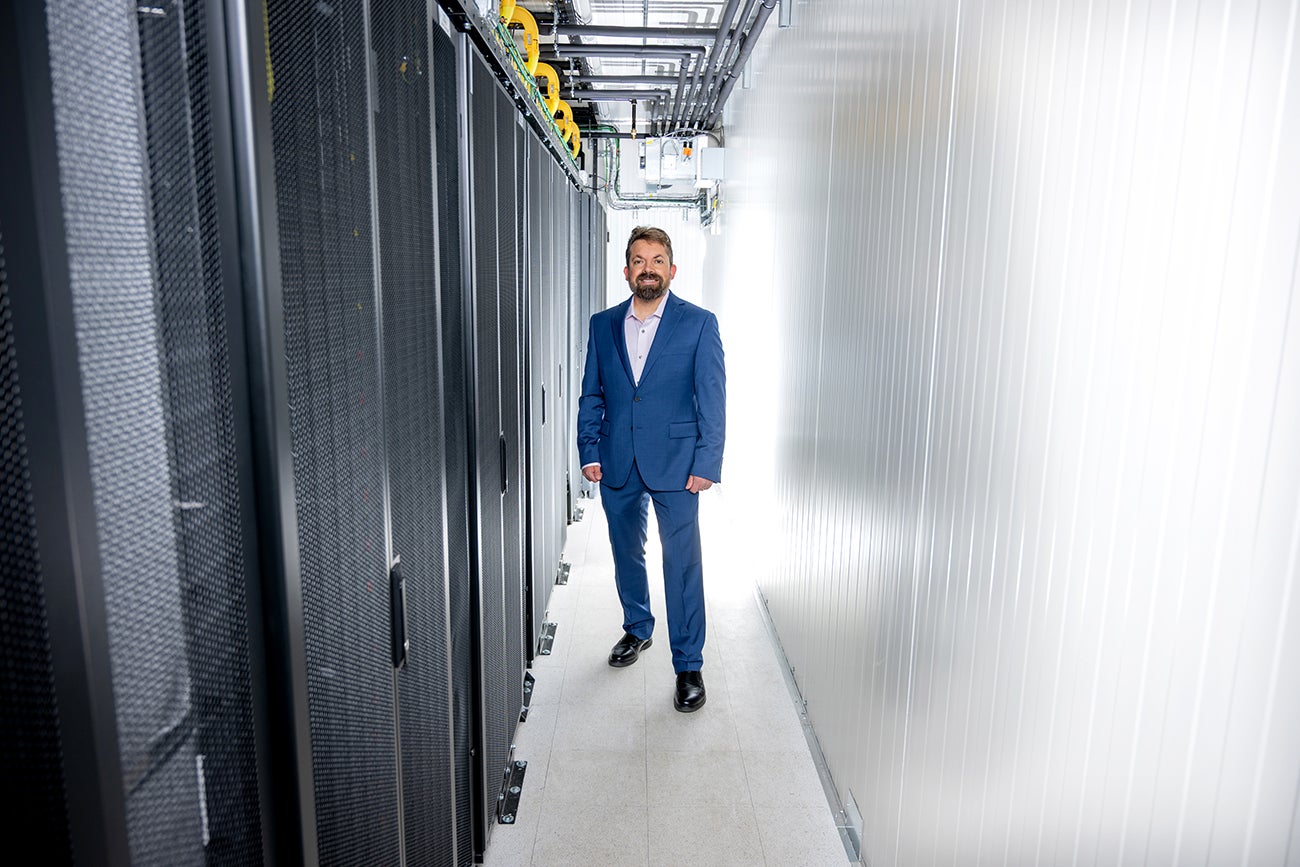The School of Computing, established in November 2024, is poised to enhance Idaho’s competitiveness, innovation and economic growth by training a workforce skilled in health care, engineering, the sciences, business and more. Boise State’s newest school offers two online undergraduate degrees and multiple graduate level degrees and certificates.
The school emerges from growing momentum and demand — Boise State’s computing Ph.D. program is the university’s fastest-growing doctoral program. Emphasis areas include cybersecurity, computational math, science and engineering, data science, computer science and artificial intelligence.
Tim Anderson, a professor of computer science, helped design the school’s framework. “Beyond the roles typically associated with computing, such as programmers, software developers and web developers, Idaho companies need a wide range of computing-savvy talent,” Anderson said. “This includes professionals in sales, marketing, customer support, artistic and design fields, and even executive leadership. Our goal is to equip every Boise State student — regardless of their major — with essential computing skills. This ensures we can help produce the diverse talent Idaho companies need to stay competitive, thrive and grow.”
A new leader on familiar ground
Double Bronco alum Ira Burton (BS, computer science, 1999, MS, computer science, 2003) is the school’s inaugural director. Burton spent his early years in Ontario and Nyssa, Oregon, and graduated from Nampa High School in Nampa, Idaho. He joins Boise State after nearly three decades at Micron Technology.

Boise State’s new school is uniquely positioned to contribute to the U.S. technology boom, Burton said. Its location offers access to Idaho lawmakers and a thriving city start-up scene. The area is home to two Fortune 500 company headquarters — Micron Technology and Albertsons — and the Idaho National Laboratory. He also noted Micron Technology’s recent $15 billion investment in a new semiconductor fabrication plant in Boise.
In addition to professional education, the school offers students the opportunity to explore philosophical concerns surrounding technology, including privacy, ownership and responsibility. “For Boise State graduates to be equipped as ethical leaders of the future, they need to understand the capabilities of technology and the frameworks needed to evaluate how that technology is being used,” Burton said.
Burton called his new post a “once-in-a-lifetime opportunity.”
“It is great to be back at Boise State and having a part in Boise State’s success story,” he said.
By Jamie Fink